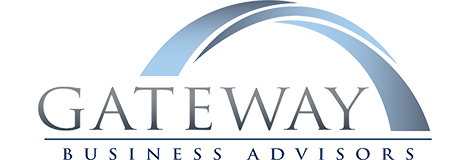
Lack of Experience Can Be a True Deal Killer

Most business owners are experts at running their specific businesses. They are not necessarily experts at selling businesses. This is where working with a seasoned brokerage professional can prove to be invaluable.
As it turns out, there are endless examples of people trying to save money by simply finding an MBA to handle the sale of their business. Owners often will trust this person despite whether or not they have direct experience selling businesses. Sadly, the results from this decision can be very poor.
Let’s take the example of a business owner who opted to let his nephew with a freshly minted MBA oversee the sale of his multi-location retail operation. The idea was that his nephew would help him save a great deal of money. Unfortunately, this idea simply didn’t work. His well-intended nephew’s inexperience proved to be a liability.
Let’s take a look at some of the main problems that this business owner and his nephew faced:
Missing Legal Arrangements
One of the first problems is that neither the business owner nor the nephew realized how important confidentiality agreements were to the process of selling a business. This led to competitors learning that the business was for sale. Likewise, the lack of confidentiality agreements meant that everyone from key employees to clients, customers and suppliers could learn that the business was for sale.
Further, the nephew opted to use the company’s attorney instead of finding an attorney with experience in business transactions. The company attorney had never handled the sale of a large business before.
Incomplete Documentation
Another problem was that the nephew prepared what was supposed to be a Confidential Business Review/Confidential Information Summary – CBR/CIM. The review/summary prepared by the nephew failed to include proper financials, including a large sum taken by the owner. Importantly, there were no projections, ratios and other important information. This lack of information could easily lower the bids or simply cause prospective buyers to lose interest.
The way that the business owner and nephew handled the CFO was also an issue. They failed to bring in the CFO and did not execute a “stay” agreement. The nephew was confident that he could handle the financial details on his own. However, neither the owner nor the nephew realized that prospective buyers expected to meet the CFO as part of the due diligence process.
Failure to Properly Screen Candidates
Finally, not only did the nephew not understand the importance of confidentiality agreements or the due diligence process, but he also failed to understand the importance of the screening process. The nephew failed to interview prospective buyers to discover whether or not they were serious and had the resources to buy the business. The failure to have a proper screening process served to both waste valuable time and spread the word that the business was for sale.
For most people, selling a business is the single most important financial decision of their lives. For this reason, it is critical to find experienced and competent assistance for the process. An experienced business broker or M&A advisor understands what is involved in selling a business. In other words, your nephew may be a great guy and he may want to help you, but without years of experience selling businesses, he simply isn’t the right person for the job.
Copyright: Business Brokerage Press, Inc.
The post Lack of Experience Can Be a True Deal Killer appeared first on Deal Studio – Automate, accelerate and elevate your deal making.

What to Consider Before Handing Your Business Over to the Next Generation

No business owner will be able to stay with their business indefinitely. For this reason, you will either have to eventually sell or hand your business off to the next generation. Let’s take a closer look at the concept of handing a business over to a family member and how you can make sure that the business is in optimal shape when the time comes.
If you want your business to be prepared for succession and the next generation, you’ll want to repair any key problems before handing it over. Some experts advise putting your focus on evolving the business. One key recommendation is to focus on sales, marketing and distribution in the coming years, so that troublesome issues, such as sales plateaus, are properly addressed and hopefully circumvented.
Also, you’ll want to consider boosting communication with key employees so that current management understands where all the employees stand. Skilled and motivated employees are rare commodities, and they are absolutely critical to the future success of any business. For any business owner considering handing over their business to their children, employee skill level, motivation and commitment will be essential to the success of the business during a potential transition period.
Some people see their business as a form of job creation for their children, instead of being what it truly is, a business. For a wide variety of reasons, it may not be feasible for your descendants and relatives to take over the business. They may not be capable of the demands or they may simply have no interest. But if you are able to successfully pass it down, you’ll want to optimize their chances for success.
Just as buying or selling a business involves preparation, the same holds true for handing the baton to the next generation. There is no replacement for advance planning. The sooner that you begin thinking about, and taking tangible steps to prepare for the next generation taking over the reins, the better off everyone will be.
Copyright: Business Brokerage Press, Inc.
The post What to Consider Before Handing Your Business Over to the Next Generation appeared first on Deal Studio – Automate, accelerate and elevate your deal making.

What Can Negatively Impact Your Chances of a Sale?

The last thing that any business owner wants is for a sale to fall through over something that was completely preventable. The good news is that with proper preparation and planning, these mistakes can be minimized or avoided altogether.
Workforce Issues
One of the top mistakes that business owners can make is allowing for an unstable workforce. It should come as no surprise that prospective buyers want to buy a business that produces consistent results. A key part of business stability resides in a stable workforce. Having a great product or service and then knowing that you have good dependable people to deliver those goods and services is essential. Buyers will be looking for this when they make their buying decisions.
Faulty Recordkeeping
You can be very certain that any serious buyer will want to examine your books for the last several years. It is only prudent to expect that a prospective buyer will look at every part of your financials, including everything from your operating costs to your sales history. Proper recordkeeping will help convey the message that you are a responsible business owner, and this in turn, will increase the perceived value of your business.
Delayed Improvements
Delaying key investments and improvements may sound good for the foreseeable future, but it can be costly in the long run. It also points to a lack of vision and planning on the part of business owners. If you’d like to maintain your business’ value for when it is time to sell, you must constantly invest in your future. This will help your business thrive today and grow in the future.
Another mistake that business owners can make is to fail to innovate. In a sense, this failure often goes hand-in-hand with a failure to invest in the business. A business that is not innovative is one that may be seen as a business that is not well positioned for the future.
Of course, every industry is different. For this reason, it is important that business owners evaluate their business, the competition, and what opportunities exist if they embrace a constant stream of innovation. It is key to note that innovation is not always about making grandiose and costly moves. Quite often, innovation is the result of adopting a different mindset and finding small ways to boost customer or client satisfaction and reach new customers.
Failing to Work with Professionals
Business brokers and M&A advisors understand all of these variables. They understand the mistakes that business owners can make when preparing to sell their business. Just as importantly, they understand the steps necessary to circumvent them. Working with a brokerage professional well before putting your business up for sale will dramatically increase your odds of a successful outcome. You’ll also want a solid team of other professionals including an experienced attorney and accountant.
Copyright: Business Brokerage Press, Inc.
monkeybusinessimages/BigStock.com
The post What Can Negatively Impact Your Chances of a Sale? appeared first on Deal Studio – Automate, accelerate and elevate your deal making.

What You Need to Know About the Confidential Business Review

There are many different strategies that will likely be deployed during the sales process. In this article, we’ll focus on how to utilize the Confidential Business Review CBR and/or CIM. Frequently, the Confidential Business Review is also referred to as a Confidential Information Memorandum. But no matter what name is used, the CBR/CIM provides a pathway for obtaining the highest selling price possible.
It is important to understand that the CBR/CIM must be factual at its core. Yet simultaneously, the CBR/CIM can function as a promotional and sales tool. The CBR/CIM can be integrated with an Executive Summary in the document, which allows prospective buyers a way to learn more about the business.
Through the Executive Summary section of the CBR/CIM, prospective buyers can quickly gain insight into the key highlights of a given company. The outline should include key factors, such as an overview of the ownership and management structure as well as a description of both the business and financial highlights. The company’s products and services should also be covered in detail. Importantly, the CBR/CIM should include why the business is for sale and some information about the market.
A well-constructed Executive Summary helps to both guide and motivate a prospective buyer so that they become motivated to learn more and take action. The Executive Summary should grab hold of anyone who reads the high points and illuminate why your business is valuable.
Many variables can be included in the CBR/CIM. Everything from the history of your company and what it does for the markets it serves and the products it creates can all be found in this document. Other topics such as the current state of competition, your key customers, management, your growth strategies, various financial information and other important variables can all be included in a CBR/CIM.
The creation of a coherent and persuasive CBR/CIM, one that motivates a prospective buyer or their representative to take action, is an artform. Much like it is prudent to invest both time and resources to the creation of an excellent confidentiality agreement, the same holds true for the creation of a CBR/CIM.
Business Brokers and M&A Advisors are experts in the creation of key sales documents, such as the CBR/CIM. One of the quickest and easiest ways to create an excellent CBR/CIM is to work with an experienced Business Broker as they understand exactly what should be in an offering memorandum. This document may very well be the first important contact point with a prospective buyer. For this reason, it should be designed to work to your benefit in a variety of ways.
Copyright: Business Brokerage Press, Inc.
The post What You Need to Know About the Confidential Business Review appeared first on Deal Studio – Automate, accelerate and elevate your deal making.

Making the Most Out of Your Confidentiality Agreements

Great deals can quickly be derailed when confidentiality agreements are not properly used and observed. The number of headaches that can occur due to a failure to follow the requirements of a confidentiality agreement are rather extensive. Whether it is employees discovering the potential sale, to the loss of key customers or even alerting a competitor that your business is for sale, there is no end to the headaches that can arise when a confidentiality agreement is not in place or adhered to. Simply stated, adhering to confidentiality is one of the most important aspects of the entire sales process.
Thanks to a well-constructed confidentiality agreement, sellers can enjoy protection from the disclosure of critical and confidential information during the sales process. While confidential agreements may have originated as a way to safeguard against prospective buyers revealing information about a seller’s business, these agreements have evolved to consider numerous seller concerns.
A good confidentiality agreement helps to protect all sorts of important details that may be revealed during the sales process including trade secrets and proprietary information. It can also outline the fact that a prospective buyer will not attempt to hire away key employees.
Considering the importance of a confidentiality agreement, it is well worth the time to create an agreement that covers all key areas. Everything from how confidential information should be shared to how breaches in confidentiality should be remedied must be addressed by a confidentiality agreement. It is not prudent to cut corners to save money and time when drafting a confidentiality agreement, as it is likely one of the most important business documents your business will ever create.
Just as no two businesses are the same, this fact holds true for the content of important legal documents. The sale of every business is a unique situation, and for that reason every confidentiality agreement must be tailored to fit the precise circumstances of the business.
Business brokers and M&A advisors are experts in the buying and selling of businesses. Part of that expertise extends to the creation and execution of confidentiality agreements, which are also sometimes referred to as non-disclosure agreements.
At the end of the day, the last thing any business owner wants is for key information regarding their business to be revealed. Working closely with a brokerage professional is an important way for sellers to safeguard their confidentiality throughout the process.
Copyright: Business Brokerage Press, Inc.
The post Making the Most Out of Your Confidentiality Agreements appeared first on Deal Studio – Automate, accelerate and elevate your deal making.

